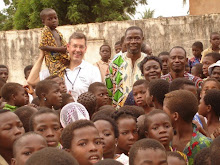Entering the clean but dilapidated orphanage, I saw row after row of cribs – babies lying there with little human contact. What limited human presence there was seemed overwhelmed by the sheer number of babies. The place was clean but sparse, like an almost-empty warehouse. My mind wandered to the North Shore Animal League on Long Island where my adventures in rescuing the unfortunate had begun, and quite a royal palace in comparison. The Humane Society under the 59th Street Bridge and the City Animal Shelter on 110th Street in Harlem were also well beyond comparison.
My thoughts were broken by an infant who was to take hold of my life. His eyes alive and his face animated, the ten-month-old boy stood proudly in his worn crib, a picture of life in a place that was barren. “Take me home with you! Let me be your son!,” his eyes seemed to speak. Startled, I asked one of the old women volunteers if I could pick him up, and thus was introduced to Regan, a boy named badly after my own president on the other side of the world.
The connection between us was immediate and visceral, and I found his presence in my arms the most riveting experience of my life. I could not put him down as he seemed to stare into my soul, knowing he had found his protector. I knew that the name “Regan” would have to go. But first and above all else, I had to have this little boy as my son. With hesitation I put him down, telling him with my touch that I would be back to rescue him, and to be brave. I could not sleep that night, and the geckos on the ceiling above kept me company until dawn.
More transpired than is of interest here, but three days later the boy came to live with my Indonesian friends and me, arriving at our Indonesian home on Christmas Eve. We named him “Mathew,” not realizing at the time the Hebrew origin of the word: Gift from God. A few months and many more details later I met Mathew at JFK with the Indonesian family that had adopted him. A marriage later, I became Matt’s father.
My son Mathew, adopted in Sulawesi at ten months, is today a teen.
No happier father has ever lived, yet I had a persistent thought: What about the children I left behind? Were they without value? Were they disposable? Who would care for them? Would they ever do more than just survive, if even that?
My mother [Frances D. Alleman-Luce, child psychologist, 1924-2001] welcomed Matt into the family, and realized that her son was distracted in spite of his happiness. She quickly uncovered my sense of remorse – the fact that Matt was not alone, that there was a world of children out there who would never make it. They had a right to make it in life, but might not be able to exercise that right. My mother informed me that she knew me well and believed I would one day build a network of orphanages around the world to give other children the care I wanted to give to Mathew. I told her she was dreaming.
I engaged my mother in animated conversations on how a network of orphanages might be created to save the other Mathews of the world, whether in Peru or Haiti or Romania. I began to sketch out my ideas on the bus back and forth to Boston during my monthly trips to visit her. Later, the trip would be made in the car with Matt, three Indonesian in-laws, and four dogs. Mom was always warm, welcoming, and sharp as she continued to edit my thinking and offer feedback from her clinical perspective.
My mother’s death in the spring of 2001 affected us all. My mother simply could not bear to bury my brother Rick [Richard Livingston Luce, artificial intelligence software engineer, 1955-2001] who went from diagnosis to death by cancer in less than six months. Mom’s response was to stop eating. She wanted to beat him to the grave, and she managed it by only a few days. However, her will provided me with the funds to begin our first home in an old Indonesian farmhouse on the same street where I had found Mathew.
My mother’s memorial in New York featured Muslim, Hindu, Buddhist, and Christian prayers, a modern Japanese ballet performance, Dominican drums, trumpets blaring the hymn “Joyful, Joyful,” and my son later pouring her remains into the family memorial garden in Hingham, on Boston’s South Shore. The family hailed from Massachusetts, and a daughter of that Commonwealth was given back to her – ashes to ashes, dust to dust.


No comments:
Post a Comment